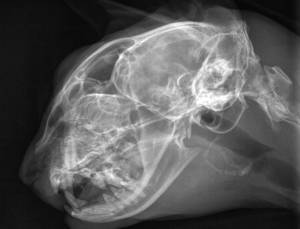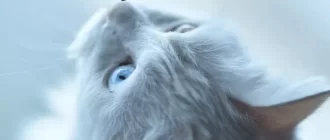Understanding your feline companion’s behavior is often a journey of endless exploration characterized by bouts of confusion and fascination. One such perplexing scenario for many cat owners is why their cat’s meow sometimes eerily resembles a baby’s cry. To unravel this mystery, let’s delve into untangling the science and theories behind this phenomenon.
The Science behind Your Cat’s Meow
Cats, just like us, use vocalization as a means to express their feelings and desires. As domesticated animals, they’ve learned the power of communication and have developed a diverse orchestra of meows, trills, and purrs. The likeness of a cat’s meow to a baby’s cry isn’t coincidence, but rather an embedded strategy.
The scientific basis of this similarity lies primarily in the similar frequency ranges of a cat’s meow and a human baby’s cry. A study conducted by Nicholas Nicastro at Cornell University uncovered a critical observation. Domestic cats’ meows typically have a frequency range between 300 and 600 Hz, aligning quite well within the range of a human baby’s cry, thus causing the uncanny resemblance.
Emotional Manipulation: A Theoretical Perspective
Besides the scientific proof, a rather intriguing theory suggests the concept of emotional manipulation. Cats might have developed a baby-like cry to invoke an instinctual response from us, their human caregivers.
Karen McComb, a scientist from the University of Sussex, hypothesized that this unique meow, termed the “solicitation purr,” strategically blends an urgent cry with a purr’s low-frequency harmonic to solicit attention. This elicits in humans an emotional response akin to attending to a crying baby.
| Type of Meow | Potential Reasons |
|---|---|
| Solicitation Purr | To seek attention or fulfill a need |
| Distress Meow | To express discomfort or fear |

Health Concerns: When to Be Worried
While an infant-like meow is typically just a means of communication, it can sometimes be a sign of distress. A sudden change in the tone, frequency, or volume of your cat’s meow might signify health issues such as hyperthyroidism or high blood pressure.
If you notice a significant variation or a persistent, unusual meow, it is essential to consult your vet for a thorough check-up.
Conclusion
Whether it’s for attention-seeking or a means to communicate, the similarity between a cat’s meow and a baby’s cry largely lies in their shared frequency range. It’s a fascinating display of your cat’s nature and possible emotional manipulation. However, always be mindful of any abrupt changes in your cat’s meow sounds, as it could suggest potential health issues.
Your feline friend’s emotional and physical wellbeing is, after all, a priority in your shared companionship!





